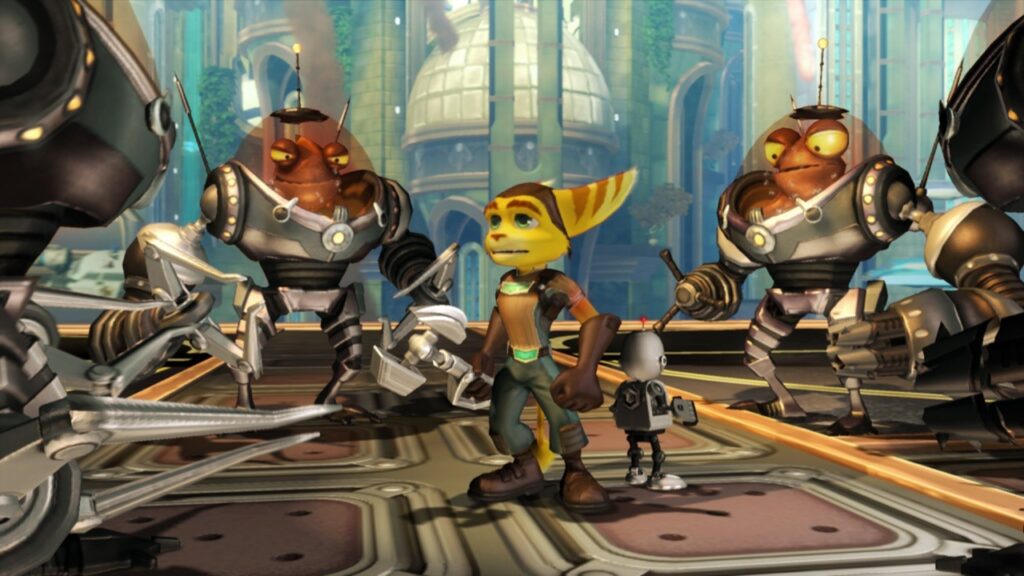Game reviews have been around since the mid-1970s. Play Meter was the first of its kind. During their time, it was mainly coin-operated machines that were covered, as certain arcade games that many of us consider classics such as Space Invaders were popular. Other publications sprang up, such as Arcade Alley in 1979. From then on, gaming journalism was on the rise. Electronic Games Magazine, Famitsu, The Games Machine, Nintendo Power, and others all gave way to gaming journalism’s growing popularity and importance. In the beginning, gaming journalism was about the love of the games, the history of the product, and giving potential consumers genuine insight. The passion was there. The commitment was there. The insight was there. And most importantly, the trust was there. You could trust that the writers had genuine care. You could trust that the articles and interviews were from the heart. But over time, that has changed. And I have to say, not for the better.
I believe there are two main factors that lead to the decline of trust in gaming journalism. The first is corporatism. And the second is tribalism. If not for these two factors, the truth would be more available to people on any given subject and we as customers would be able to make better-informed decisions in a time when people see the value of their currency decline. And it’s not hard to make a correlation between the declining state of quality games as well as gaming journalism to both of these factors

Now corruption in any industry isn’t a new thing so we won’t act like it’s exclusive to the gaming industry. But it’s become a constant theme in gaming media. Most notably, in the era of the PS3, Xbox360, and Wii is when the signs of potential corruption began to become more out in the open. And sadly, it feels as if it has only gotten worse in recent times. There are a number of alleged incidents that come into play here. In October of 2007, Gamespot wrote up an article for Insomniac’s game, Ratchet and Clank: Future tools of Destruction. The game was given a score of 7.5. Most other major review sites gave the game scores in the range of 8.5 or higher. Now, the score itself isn’t where the bone of contention came from. After all, initially, reviews are meant to be opinions and everybody has one. The bone of contention is what was said in that review:
“They say variety is the spice of life, but there’s such a thing as too much spice”
Now ask yourself, have you ever done anything in your life, gone anywhere in your life, or had so many options available to you that you felt that having too many options is a bad thing? For most rational people, the answer would be no. Had they given the game that score without that particular line, sure people would still gripe, but it wouldn’t have been as controversial. And there definitely wouldn’t have been a shining red light on corporatism in gaming media. At least, not to the degree it is now
Another alleged example of corporatism infecting game journalism would be the infamous Kane & Lynch situation. Oddly enough, like the Ratchet & Clank review issue, this too comes from Gamespot. The general situation with this one was Jeff Gertsmann, the then editorial director reviewed Kane & Lynch: Deadmen. He gave the game a 6 rating. After which, he was fired from his post. The alleged word is that Eidos Interactive put pressure on Gamespot for the review and that was the reason for Gertsmann’s dismissal. What would give Eidos that kind of power you ask? The fact that they were literally running ads for the game on Gamespot’s website. They were paying Gamespot to make the game look and sound good. Gertsmann’s review ran diametrically opposed to that notion. All in all, this exposed the corporate nature of gaming media even more so than the Ratchet and Clank situation. With Ratchet and Clank, a case could be made that was more about tribalism rather than corporatism. But with Kane and Lynch, if the alleged is true, then that is no doubt an issue of corporatism.

A more direct version of the corrupting nature of corporatism in game journalism would be review and preview events. Normally, these are events where companies show off their upcoming games to a select few of the influential people in the game journalism space. For the most part, these end up being parties where reviewers and editors get free stuff and access. If you can’t see the corrupting nature of this I’m not sure what to tell you. The bottom line here is the companies that hold events like these are much more likely to get favorable treatment when it comes to reviews on their products, in this case, games. And by chance, if a reviewer feels a company didn’t invite them to an event or gave them a review copy late, we’ve seen them take it out of the review scores as well. Now to me, this is especially damaging because one, this does a disservice to the consumer because it means in some cases, the review score is based on whether or not a company made the journalists happy. Secondly, this gives the game journalist an over-inflated sense of importance because they can potentially make or break a game based on their arbitrary number.
Then you have what was recently uncovered during an IGN Live show where people were paid and instructed to cheer and clap for speakers on stage. When Phil Spencer was asked about the studio closures, he responded that he was trying to run a sustainable business. So when people clapped after he said that it felt out of place. Especially since we all saw how both the industry and fans reacted to that when it initially happened. It’s not the kind of thing a rational-thinking person would cheer for. Unless you’re getting paid for it. Which once again highlights the corruption issue. Look, an audience being instructed to cheer or clap is nothing new. Talk shows, Sitcoms, and Late-night shows do it all the time. But what makes it insidious in this case is that these are companies trying to sell you something. Talk shows, Sitcoms, and Late-night shows aren’t trying to sell you anything. So to pay an event full of industry journalists and fans to cheer and clap to drum up excitement comes off slimy because the end goal is to try to sell you a product.
Now, I know this piece is mainly about gaming journalism. But this particular issue of corporatism isn’t exclusive the the mainstream outlets. Gaming companies have no problem reaching out to social media influencers too. A good example of this is from 2020 to about 2022, it felt like almost every influencer was promoting Raid Shadow Legends. For those that are unaware, Raid is a mobile rpg game. Now the problem here is that some of these same influencers have historically railed, lambasted, and campaigned against mobile gaming. Yet they had no problem advertising RAID, thereby stamping it with their own seal of approval.
At worst, it’s become commonplace for gaming companies to have events where they invite the gaming press and social media influencers and give them freebies such as statues, posters, goodie bags, and even the games themselves. All to secure a favorable high review. All of these points highlight the damaging, corrupting effect corporatism has had within the gaming journalism sphere. However, there is another factor in the decline of gaming journalism that is equally just as bad as corporatism. And that’s tribalism.
Now we need to be clear here. Tribalism in gaming is nothing new. Sega fans vs Nintendo fans. Playstation fans vs Sega fans. Playstation fans vs. Nintendo fans. Playstation fans vs Xbox fans. Console vs PC. Heck you even have Steam fans vs Epic fans now. Plenty of people have bought in and taken sides in the battle of companies that see us all as cows to be milked. Sadly, it’s how these companies make their money. Despite what some executives might tell you about wanting everyone to work together, the fact of the matter is the ones that say that are forced to. Whether it be because someone higher in the food chain deems it so. Or, their diminishing place in the pecking order of market share forces their hand.
We’ve seen tribalism in gaming journalism almost for as long as the hobby of gaming existed. Social media has magnified the problem. Any fan can make a youtube, twitch, twitter, facebook, etc account and post their opinions. There are some people that literally make their social media presence all about praising one company regardless of how bad they are. While conversely finding ways to dirt on another company no matter what positives they bring to the table.
In concept, the average social media personality can do greater damage in gaming journalism than the mainstream paid ones. The reason being, that they’re meant to be the everyday person. People are more than likely prone to trust someone they see as a regular person compared to someone they feel is corporate or part of the machine. Any person at any time can make an account, let their voice be heard, and push out his or her opinion just like anyone else. It’s something any person can do in theory at any time should they put in the work. And it’s tough to say if the good or the bad has more weight. The potential good is that you’ll get genuine people who will say what they feel based on the facts at hand regardless of them being positive or negative. But the bad is that some influencers have a tribal mindset and will push their personal views instead of giving an unbiased one.

Hell, I’ll even use myself for the sake of being open. All the games I played or reviewed thus far have been on Playstation systems on my channel. I do plan on hitting some Nintendo at some point as well as some Dreamcast stuff. I’m even considering PC stuff here and there. But one thing I won’t be doing is Xbox. I don’t buy into their products nor do I intend to. Look at my weekly and monthly giveaways. Notice how Xbox codes are the only major gaming codes I don’t give out? Yeah, that’s by design. The same goes for the monthly prizes as I’ve only given out Playstation or Dreamcast games so far. But with that said, it’s also why I don’t review or speak on Xbox very much. I’ll speak on the industry and since Xbox is part of the game industry you can’t not include them. But in terms of speaking about them specifically, reviewing them, or showing off gameplay, that’s not going to happen with me. It’s a methodology I wish more people would take. If you don’t buy into it or play the content, don’t speak on it. But that’s a topic for another time.
And despite what any company says about disliking tribalism, they benefit from it. Some even directly pushed for it. Case in point, Peter Moore was the vice president of Microsoft’s Interactive Entertainment Business division, overseeing the Xbox and Xbox 360. He gave an interview to Metro.UK. In his interview, he openly admitted his former company perpetuated the console war. From a personal standpoint, in the back of my head, I always felt Xbox execs wanted the console war simply based on the comments of people like Aaron Greenberg and Shane Kim alone. So it felt very vindicating for me personally when Peter Moore gave his own words admitting to the fact.

Ok with all that said, we have to figure just how this can be changed for the better. And that starts at the source. Similar to how Bernie Sanders or progressives try to get money out of politics, the same has to be done with gaming. Right now, the people running the industry and its media are people aligned with the stock market and the corporate world. That needs to be reverted to people who actually care about the hobby of gaming. This is actually part of the reason guys like Kotaku or IGN dislike youtubers, bloggers, and social media influencers. They challenge their dominion as they see it. And that’s a good thing. It will always be better to have a normal person’s opinion over someone who gets incentivized to do it, or worse, push a narrative.
The second thing that has to happen is the industry has to stop giving game journalists power. To be fair, the same can be said for the influencers they pay off too, but more so game journalists because they have an official status and employment. Start letting the products stand on their own merit. Stop paying for positive reviews and coverage. It creates a horrible cycle when money and/ or favors are in play. Developers create the game. Then if the reviewer isn’t “catered” to, they let it show in their reviews. And in turn, the average-to-low review scores are used as a reason to punish the developers. Then the process starts all over again. These companies are literally paying people to control their destiny. And by some unfortunate chance that things go poorly, devs lose their jobs because of it.
Lastly, some of the onus for this is on us the consumers. Games are meant to be fun. And every person’s idea of what is fun and what isn’t will vary. No two people are alike. So then why do we have people that literally wait for a review to determine if a game is good or not? These reviewers don’t know you, what you like, your play style, or your general personality. So why we allow people with their arbitrary opinion-based numbers to tell us what they should or shouldn’t enjoy is a total mystery to me.
The most I can say for anyone is to come to your own conclusion. Gaming journalism is way too corrupt and it would take a herculean effort to make the needed changes. Influencers will say whatever their sponsor tells them too, so you can’t trust that either. But you can trust yourself. Gameplay videos are all over youtube. No reviewer or influencer can say anything in comparison to what you see with your own two eyes. I myself over the years have come to like plenty of games that the general “review score” reflected negatively on. In conclusion, stop letting the paid-for-opinions tell you what you should enjoy. Only you can do that.


